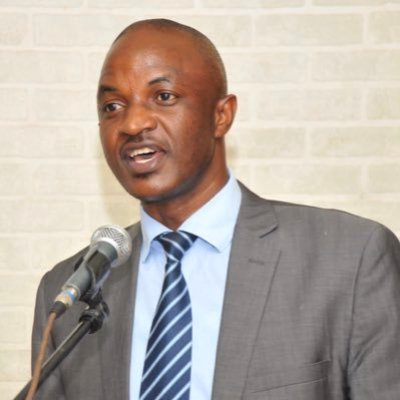PS Ggoobi says government is not broke as thought by public
The government withheld substantial amounts of funds which were supposed to be released in the first quarter of the financial year 2022/2023, as a way of controlling the count of money in circulation, according to the Ministry of Finance, Planning and Economic Development.
This fiscal action came as a way of supplementing the Bank of Uganda’s monetary policy where it increases the interest rates to tame the demand for loans by the public, according to the Permanent Secretary of the Ministry of Finance, Planning and Economic Development Ramathan Ggoobi.
However, the action saw government agencies go without adequate funds for their projects, with the ministry saying that exception was given to payment of salaries and funding for defence and security. Many public servants were also not fully paid by the end of the quarter and to the general public, the government was too broke to support its own budget.
“The Quarter One releases were constrained due to the need to support monetary policy in curbing inflation. However, there was much better revenue performance than had been projected,” Ggoobi said, adding that the Ministry of Finance was implementing supportive fiscal policies in the first Quarter to slow down inflation without compromising continued economic recovery.
Now, Ggoobi says all accounting officers must ensure that all salaries and other remuneration are paid by the end of this quarter. A total of 7.3 trillion Shillings has been released to finance the second quarter of the year and explains that the government was not broke when it failed to release all the budgeted funds for the last quarter.
Revised estimates from the Uganda Bureau of Statistics show that during the last financial year, the economy grew by 4.7 per cent exceeding the initial expectation of 3.8 per cent as it continued to recover from the effects of the COVID-19 pandemic, amidst the emerging shocks.
“Fellow Ugandans Government has got the resources to cater for this statutory obligation. On the revenue side, the months of July to September 2022 registered a surplus of 177.9 billion Shillings, thereby improving the government’s financial position,” he stressed.
Accordingly, Ggoobi said 1.78 trillion Shillings has been released to ensure comprehensive provision for salaries, and this includes enhancements for scientists, health professionals, science teachers and tutors and scientists in public universities. All Accounting Officers must ensure that they pay wages, salaries, pensions and gratuities by the 28th day of every month.
He again cautioned accounting officers against delaying the clearing of financial obligations, telling them to, as a must, prioritize payment of service providers in time and avoid an accumulation of arrears. “All government institutions should ensure pre-payment of utilities (water and electricity), failure to adhere to this, the service providers should turn off non-compliant votes,” he added.
The ministry has also provided another 397.3 billion Shillings for the Parish Development Model (PDM), bringing total funding to the initiative so far to 50 per cent (529.7 billion) of its budget. Ggoobi says that all parishes should now be able to access 50 million Shillings each, in half a year.
This drew concerns from civil society over the concerns of the money being released to PDM despite the reports of unpreparedness on the side of the implementers. Julius Mukunda, the Executive Director, of the Civil Society Advocacy Group, CSBAG, wondered what measures the government had put in place to ensure the safety of the money.
“The beneficiaries of PDM should ensure that this money is not stolen by a few members of parishes; we need everyone to benefit and ensure that money is used productively,” he says. On oil and gas, the ministry has now provided all the money budgeted for the Uganda National Oil Company, UNOC, after announcing a release of 337.3 billion shillings for the company.
This has been done to meet the Government of Uganda’s equity participating interests in the East African Crude Oil Pipeline (EACOP) Company, in which it owns a 15 per cent share.
Moses Kaggwa, the Director of Economic Monitoring at the ministry says that they have noted the low capacity of local governments to raise the targeted revenues only meeting about 13 per cent of the budgeted figure. “As per the end of Quarter one, we had received 27 billion, out of over 200 billion Shillings that we expected from Local Government revenues. We need to improve their capacity to collect more,” Kaggwa said.
However, civil society reported that the local governments were also constrained by the central government’s failure to meet its obligations to them.
“The continued outcry from Local Governments about Central Government holding their local collections; the issue raised in Budget Consultations is that they are receiving less money than what they collected,” said CSBAG’s Julius Mukunda.
However Goobi said the economy was recovering, but challenges like the rising foreign exchange rate and high inflation were affecting this recovery. “Depreciation of the Shilling due to the strengthening of the US Dollar has affected prices of imports hence imported inflation,” Ggoobi added.
-URN





